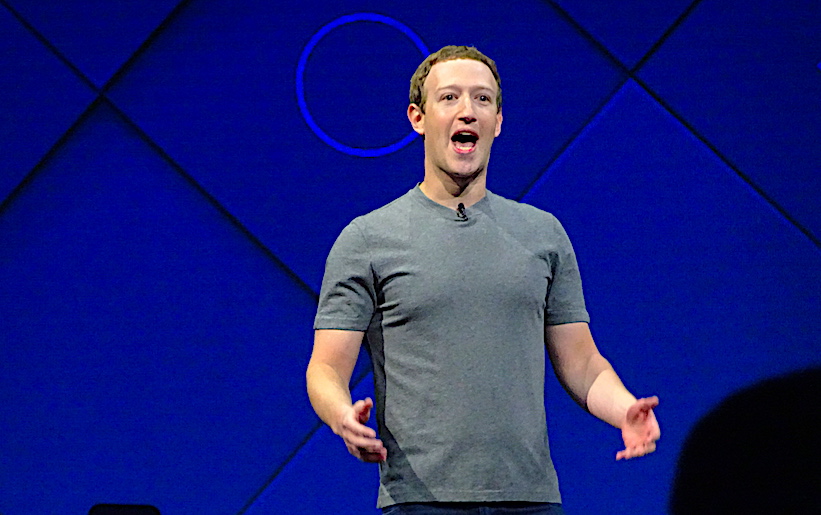 APPS
APPS
 APPS
APPS
 APPS
APPS
Another big-tech leader has shown the market it can weather the coronavirus pandemic: Facebook Inc. today pleased investors with a better-than-expected first quarter despite a late slump in ad revenue.
The social media giant reported a first-quarter profit of $5.9 billion, or $1.71 a share, more than double a year ago when the company had a $3 billion legal fee from a settlement with the U.S. Federal Trade Commission. Revenue rose 18%, to $17.7 billion.
The profit came in just under analysts’ average forecast of $1.74 a share, while revenue came in a hair above. But given the widespread expectation that ad sales might crater, the news was enough to cheer investors considerably.
Facebook’s shares rose by more than 11% in after-hours trading. They had risen more than 6%, to $194.19, in regular trading on a day, likely buoyed by Alphabet Inc.’s positive earnings report Tuesday, when the impact on advertising appeared to be not as bad as feared.
Even so, Facebook said it’s tough to know what’s ahead, and it won’t provide customary guidance for the next quarter or for the full year. That’s despite a major jump in the use of some of its services such as voice and video calling.
“The impact on our business has been significant,” Facebook Chief Executive Mark Zuckerberg (pictured) said on an earnings conference call. He added that he fears the economic fallout will last longer than people expect and he’s worried that reopening some places too quickly “will almost guarantee further outbreaks.”
That said, Facebook said it has seen “signs of stability” in the first three weeks of April, during which ad revenue has been flat from a year ago.
Facebook had warned of an ad slowdown last month even as it sees much more activity on WhatsApp and Messenger, which don’t bring in significant ad revenue. The company was seen as especially vulnerable to the many closed businesses and shelter-in-place orders, since those most affected tend to be small businesses — and that’s Facebook’s bread and butter.
As with Google, the second quarter is likely to be a more accurate indicator of the real impact of the pandemic — and it won’t be great.
“The fact that revenue was flat in the first three weeks of April indicates that Q2 will be a much more challenging quarter than Q1 was,” said eMarketer Principal Analyst Debra Aho Williamson. “Some countries will be open for business sooner than others, and ad spending will start to rise there, but other countries will remain largely on lockdown into May and possibly beyond. Even within countries, such as in the U.S., businesses will open up at varying rates, making it incredibly difficult for a company like Facebook to get its ad sales momentum back.”
But it may not be as bad as some fear. According to Reuters, the digital marketing agency Gupta Media said the volume of ads shown on Facebook doubled late in the quarter as usage of the social network’s services jumped, while ad prices declined by about half to $1.08 per thousand impressions at the end of March, from $2.17 at the beginning. At the same time, Gupta said ad volumes rose 15% in early April from the second half of March.
The social media marketing firm Socialbakers also reported that ad spending in East Asia has risen 12.7% since early March, following their economies starting to return. “Social media data shows that ad spend in key regions like North America and Western Europe has started to pick up as savvy marketers look to stay close to their customers as these regions get to grips with the pandemic, which is a good sign that ad revenue will continue to grow for Facebook in Q2 and onward,” said Socialmakers CEO Yuval Ben-Itzhak.
Marketing firm Kenshoo today also said ad buying was returning this month. “There’s no debate COVID-19 had an impact on digital advertising in Q1, but the impact was mostly limited to March, after which spending has begun to stabilize across channels,” said Chris Costello, senior director of marketing research for Kenshoo. “While recovery will vary by industry category, April spending growth in both paid search and social indicates a recovery is already underway for many categories.”
As for expenses, the company said it’s shaving projections for total 2020 expenses to between $52 billion and $56 billion, down from a previous estimate of $54 billion to $59 billion. And it’s taking down capital spending plans to $14 billion to $16 billion, from a previous estimate of $17 billion to $19 billion but said the reduction is likely to be made up in 2021. Zuckerberg said continued spending, though, will mean lower profit margins in coming quarters.
Support our mission to keep content open and free by engaging with theCUBE community. Join theCUBE’s Alumni Trust Network, where technology leaders connect, share intelligence and create opportunities.
Founded by tech visionaries John Furrier and Dave Vellante, SiliconANGLE Media has built a dynamic ecosystem of industry-leading digital media brands that reach 15+ million elite tech professionals. Our new proprietary theCUBE AI Video Cloud is breaking ground in audience interaction, leveraging theCUBEai.com neural network to help technology companies make data-driven decisions and stay at the forefront of industry conversations.